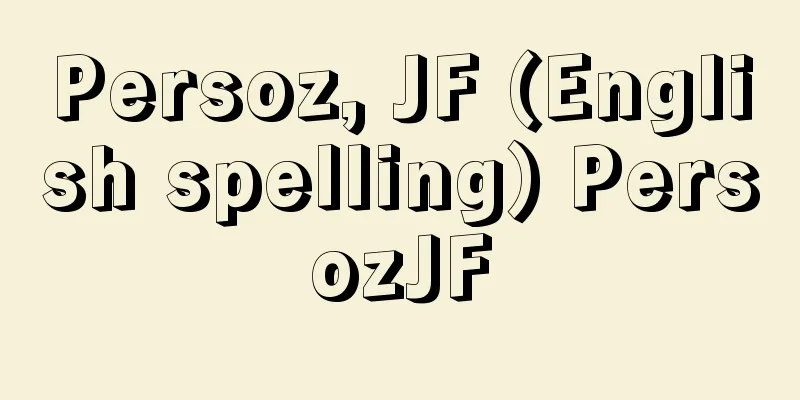Mao Dun

|
Chinese novelist and critic. Born on July 4th in Wuzhen, Tongxiang County, Zhejiang Province. His real name was Shen Dehong, and his pen name was Yanbing. He used over 100 pen names, including Mao Dun and Xuanzhu. After graduating from the preparatory school at Beijing University in 1916, he worked at the Commercial Press's Editing and Translation Department, and until his retirement at the end of 1925, he was the main editor of the Monthly Novel, as well as translating, critiquing, and introducing a wide range of topics, including literature, women's issues, and political and social issues. In 1921, he became one of the founders of the Literature Research Society, and worked to introduce Russian literature and other European realist literature, playing a central role in the debate with the Creative Society and in the criticism of old literature. On the other hand, in November 1920, he joined the Shanghai Communist Group, and the following year joined the Communist Party when it was founded. He was also actively involved in political activities, teaching at the Commoner Girls' School and Shanghai University. In 1926, he edited the Political Weekly in Guangzhou, and the following year, in 1927, he edited the Republic of China Daily in Wuhan. After the split between the Kuomintang and the Communist Party in the summer of 1927, he returned to Shanghai and, while in hiding, published the "Eclipse" trilogy (1927-28), consisting of "Disillusionment," "Disturbance," and "Pursuit," which depicted the contradiction between the ideals of the national revolution and reality. In 1928, he went into exile in Japan, where he wrote "From Korei to Tokyo" and "Reading Ni Huanzhi," critiquing the idealism of the Sozosha and Taiyosha, which were at the time advocating "revolutionary literature." After returning from Japan in April 1930, he joined the League of Left-wing Writers, and published the full-length novel "Zi Ye," the "Rural Trilogy" including "Spring," and "Hayashi Shoten," among others. His bold works, which focus on the deep social structure of China, are not only the pinnacle of the Left-wing League, but also representative of modern Chinese literature. During the war of resistance, he moved between Hong Kong, Chongqing, Guilin, and other places, editing such publications as "Saving the Dead Daily" and "Literary Camp," as well as leaving behind many works, including full-length novels such as "Corrosion" (1941) and "Frost Leaves Are Redder Than February Flowers" (1943). After liberation, he served as vice chairman of the China Federation of Literary and Artistic Circles, chairman of the China Writers Association, minister of the Cultural Affairs Department (1949-65), and vice chairman of the Chinese People's Consultative Conference, and was the first chief editor of People's Literature and Translated Texts. From 1958, 10 volumes of Mao Dun Collected Works were published, and he wrote many collections of essays, including Reading an Animal at Night, which advocated socialist realism. He made no statements during the Cultural Revolution, but after 1976 he wrote Records of Memories. He passed away on March 27, 1981. He left the party when the Kuomintang and Communist Party split in 1927, and applied three times to be reinstated, but his application was approved posthumously. [Noriko Shiramizu] "Ono Shinobu's translation of "Corrosion (A Woman's Notes)" (Iwanami Bunko)" ▽ "Ichikawa Hiroshi's translation of "Corrosion" (included in "World Literature Collection 45 Lao She/Mao Dun", 1978, Gakken)" ▽ "Tatema Shosuke's translation of "The Frost Leaves Are Red Like the February Flowers" (Iwanami Bunko)" [Reference] |Source: Shogakukan Encyclopedia Nipponica About Encyclopedia Nipponica Information | Legend |
|
中国の小説家、批評家。7月4日浙江(せっこう)省桐郷(とうきょう)県烏鎮(うちん)に生まれる。本名沈徳鴻、字(あざな)は雁冰(がんひょう)。筆名は茅盾のほか、玄珠など100を超える。1916年北京(ペキン)大学予科を卒業後、商務印書館編訳所に勤務、25年末退職するまで『小説月報』の主編を担当するほか、文学、婦人問題、政治社会問題など多方面にわたって翻訳、論評、紹介を行った。21年文学研究会の発起人の一人となり、ロシア文学をはじめヨーロッパ写実主義文学の紹介に努め、創造社との論争や旧文学批判に中心的役割を果たした。一方、20年11月上海(シャンハイ)共産主義小組に加入、翌年共産党創立と同時に入党し、平民女学校、上海大学で教鞭(きょうべん)をとるなど政治活動にも積極的に従事し、26年広州で『政治週報』を編集、翌27年は武漢で『民国日報』を編集した。 1927年夏の国共分裂以後、上海に戻り、潜伏状態のなかで、国民革命の理想と現実との矛盾を描いた『幻滅』『動揺』『追求』の『蝕(しょく)』3部作(1927~28)を発表。28年日本に亡命、おりから「革命文学」を唱えていた創造社、太陽社の観念性を批判する評論「牯嶺(これい)から東京へ」「『倪煥之(げいかんし)』を読む」を執筆した。30年4月日本より帰国後、左翼作家連盟に加入、長編『子夜(しや)』、『春(しゅんさん)』以下の「農村三部作」、『林商店』などを発表、中国の深い社会構造に目を向けた骨太の作品は、左連の頂点をなすだけでなく、中国近代文学の一つの代表でもある。抗戦中は香港(ホンコン)、重慶(じゅうけい)、桂林(けいりん)などを転々としながら『救亡日報』『文芸陣地』などを編集したほか、『腐蝕』(1941)、『霜葉は二月の花より紅い』(1943)などの長編をはじめ、多くの作品を残した。 解放後は、中国文学芸術界連合会副主席、中国作家協会主席、文化部長(1949~65)、政治協商会議副主席などを歴任、また『人民文学』『訳文』の初代主編となる。1958年より『茅盾文集』10巻が出版され、社会主義リアリズムを提唱した『夜読偶記』などの論文集を多く著した。文化大革命中は発言はなかったが、76年以後『回憶録』を執筆。81年3月27日逝去。1927年の国共分裂時に党籍を去り、その後党籍回復を3回にわたって申請していたが、没後に承認された。 [白水紀子] 『小野忍訳『腐蝕(ある女の手記)』(岩波文庫)』▽『市川宏訳『腐蝕』(『世界文学全集45 老舎・茅盾』所収・1978・学習研究社)』▽『立間祥介訳『霜葉は二月の花に似て紅なり』(岩波文庫)』 [参照項目] |出典 小学館 日本大百科全書(ニッポニカ)日本大百科全書(ニッポニカ)について 情報 | 凡例 |
>>: Mount Hoshu [Village] - Hoshuyama
Recommend
Bronze bell
A bronze bell used in festivals during the Yayoi ...
Yamamura Jinbei
A noble family that inherited the position of Kiso...
Ome Forestry - Oume Forestry
…Most of Okutama was shogunate territory during t...
Perfectly elastic collision
⇒Elastic collision Source: About Shogakukan Digita...
Naiyayika (English spelling)
...An influential school of Indian philosophy tha...
Correggio - Correggio (English spelling)
Italian High Renaissance painter. His real name w...
Ishidoriya [town] - Ishidoriya
A former town in Hienuki County in central Iwate P...
Banach space
A set B is called a Banach space if it satisfies t...
Pasuruan - Pasuruan (English spelling)
A port city in eastern Java, Indonesia. It faces ...
pyrex
...The typical compositions are listed in the tab...
Ariyos - Ariyos
…The coastline is lined with parallel dunes, abou...
Air de coeur - Air de coeur
…These contributed significantly to the developme...
Troglodytes troglodytes (English spelling) Troglodytestroglodytes
…There are about 60 species distributed in Europe...
Meng-qiu (English spelling)
A textbook for children in the Tang Dynasty, China...
Ionian nation - Ionian country
In 1866, a railway line was opened linking the to...









